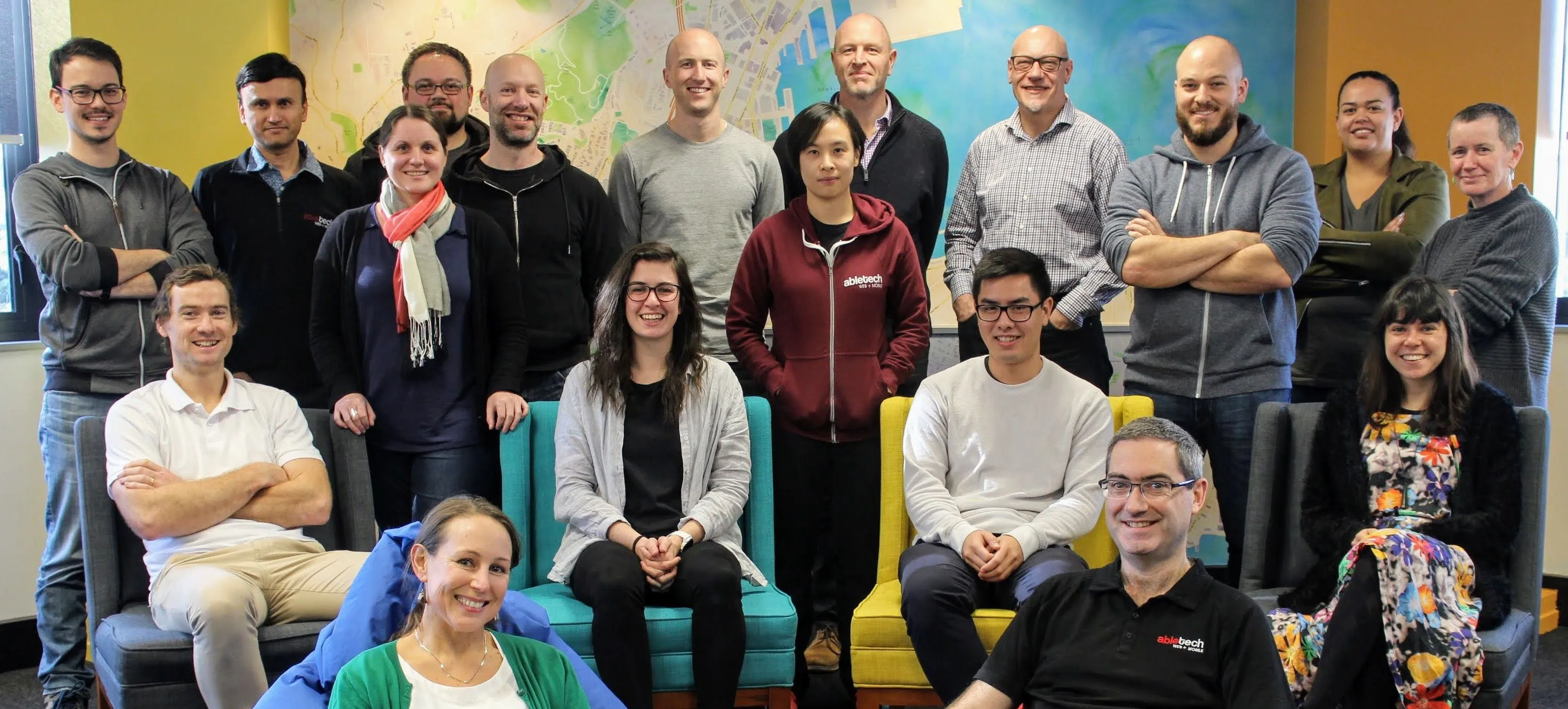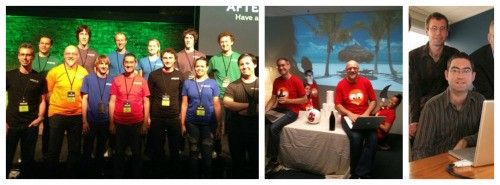The Abletech story — part one

Abletech builds web and mobile software. Our company's clients include sole traders, charities, commercial businesses and large government organisations. In the beginning it was all about some guys who simply loved the internet.

Launched in 2006, Abletech was borne out of a keen desire to boost business systems using cloud technology. Its founders worked, played and studied computing. They understood enterprise strategy and best practice. They became discerning. Discernment is a quality that continues to serve Abletech well.
Background
Abletech founders, Marcus Baguley and Nigel Ramsay, smile a lot when they hark back to the circumstances surrounding the beginnings of Abletech. They are reinvigorated as they remember the sense of freedom and independence that came with indulging their enthusiasm for cloud technologies. These days they’re still fired-up about striving for efficiency in the build and the end-use. Both Marcus and Nigel have minds that prefer the fast lane. Both are still hands-on directors of Abletech.

Marcus and Nigel originally worked for large heavily structured organisations. Banking. Government. They were building software with little say over technology choices, plans or implementations. Nigel reflects, “the enterprise choices that the management team were making were impeding the rate at which we could deliver solutions”. These years sound a bit like teen years. Restrictions. Annoyances. Unnecessary complications. But out of the discontent grew a way of reaching organisational objectives using modern approaches.

Early days
The initial trio of founders was Nigel, Koz and Marcus. While they enjoyed the scale and professionalism of big business, all three shared the feeling that technology could serve organisations better. They called their new company Able Technology Ltd. They loved the internet and scheduled a day each week to collaborate at each other’s houses.
Ruby on Rails They had a growing interest in an emerging system of coding that was altogether faster and more logical. They had the foresight to believe it was going to change the face of coding. The new system, Ruby on Rails, went on to do just that. It enables much faster builds and delivery than previously existed.
They remember the first ever Rails meet-up with six people in attendance. Marcus explains, “it was more of a hobby, there was no prospect of any commercial work in Rails”, but they all saw its potential. Koz, full name Michael Koziarski, was a contributor to early Rails development from 2004. He left Able Technology Ltd. to focus on his work as a Rails core team member, and other projects.

Foresight
These guys could see the dawn of a new era. They predicted that Software as a Service (SaaS) would become increasingly prominent and that Ruby on Rails would invigorate previously arduous design and development. “SaaS was not well understood at that point,” explains Marcus. “But there was a growing need for inexpensive platforms, easy deployments, straightforward upgrades and online applications.”
Efficiency Nigel remembers the old days. “Previously we’d do it all manually, coding with Java modules that we packaged and uploaded, we’d code an XML file, tell it where it should go and how it should run. It was slow. It took so long to deploy.” He remembers one single screen with a handful of fields that took a month to make. Ruby on Rails offered continuous integration and continuous deployment. “We write the code, then the merging, compiling, packaging is all automatic.”

Growth
By 2007 Marcus and Nigel had built Sharesight.com, an online share portfolio manager. They partnered with father-son team, Tony and Scott Ryburn, to bootstrap and develop the popular software.
Scott says that Marcus and Nigel understood the SaaS model and provided expert knowledge, insight and advice. “They delivered an elegant, highly sophisticated product rapidly and cost-effectively. It was above and beyond our expectations.” Sharesight is now enjoying success as an independent investment utility. Xero Australia MD Chris Ridd says, “Sharesight is a key add-on partner for accountants or financial advisers who help clients with their investments. They’re an important player in our strategy to build Xero horizontally and vertically.”

Word got around Marcus and Nigel were becoming sought-after for their organisational nouse. They developed modern solutions for Loadstorm, Terralink, Ministry of Social Development and Radio NZ. As the work picked up, Marcus and Nigel began hand-picking developers to work with them. “Now it was more than just us,” says Nigel. “Our first hire was Shevaun.”
For the next installment read The Abletech Story — Part Two which explains the second phase of the company’s growth.